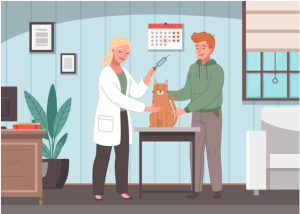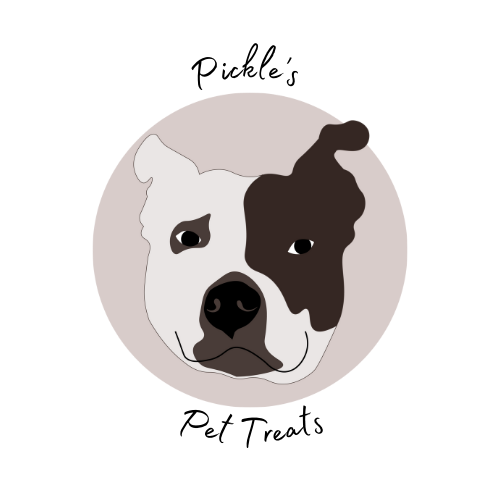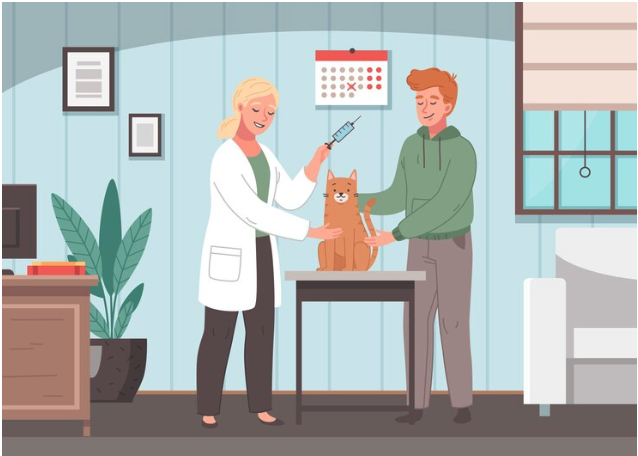As our beloved pets age, their needs change, and it’s important to adapt our care routines to ensure they remain happy and healthy. Senior pets, much like senior humans, require special attention and care. Here are some key considerations and tips for caring for older pets:
1. Regular Veterinary Check-ups

Older pets are more prone to health issues, so regular veterinary check-ups are crucial. These visits help in early detection and management of age-related conditions such as arthritis, diabetes, and kidney disease. It is usually recommended to have a blood test done to check liver and kidney values at this time also. Your vet can also provide guidance on diet, exercise, and any necessary medications to manage any illnesses or pain.
2. Adjusted Diet and Nutrition
Senior pets often have different nutritional needs compared to their younger counterparts. They may require a diet that is lower in calories due to lower energy output, but higher in fiber and essential nutrients. Consult your vet to choose the right food that supports your pet’s health and helps manage their weight. We recommend adding fresh vegetables, meat, fish and eggs to dog’s diets to improve skin, cognitive and gut health, and provide extra enrichment during feeding time.
3. Exercise and Mental Stimulation

While senior pets may not be as energetic as they once were, regular exercise is still important to maintain their physical health and prevent obesity. Gentle walks, swimming, and interactive toys can keep them active. Your vet may even recommend physiotherapy for your dog to manage arthritis. Mental stimulation through puzzle toys and training exercises can also help keep their minds sharp.
4. Comfort and Accessibility
As pets age, they may experience mobility issues. Ensure your home is senior-pet-friendly by providing soft bedding, ramps, and easy access to their favorite spots. Orthopedic beds can help alleviate joint pain, and non-slip mats and booties can prevent accidents on slippery floors. Try to limit stair use, and ensure there are barriers on decking.
5. Dental Care
Dental health is often overlooked but is crucial for senior pets. Regular brushing and dental check-ups can prevent dental diseases that can lead to more serious health issues. Dental treats and toys designed to clean teeth can also be beneficial. Your vet may recommend an anaesthetic dental cleaning once every year or two when their age advances to the senior stage. Your vet will radiograph, clean and polish teeth, and extract any infected or loose ones. If your pet requires a lumpectomy also, these procedures may be able to be done on the same day (in most cases – severe dental disease will need to be done seperately as extractions take time).
6. Monitor Behavior and Health Changes
Keep a close eye on any changes in your pet’s behavior, appetite, or weight. These changes can be indicators of underlying health issues. Early detection and intervention can make a significant difference in managing age-related conditions. Regularly feel for lumps, check teeth, and monitor drinking and urination – an increase may indicate an underlying condition such as diabetes, kidney disease, or thyroid disease.
7. Provide Love and Attention

Senior pets may require more emotional support and companionship. Spend quality time with them, offer gentle affection, and ensure they feel loved and secure. This emotional bond can greatly enhance their quality of life. If your pet has medical conditions or anxiety, pet cameras are a great tool to keep an eye on your pet while you’re not home.
8. Consider Supplements
Certain supplements, such as glucosamine and omega fatty acid complexes, can support joint health and overall well-being in senior pets. Always consult your vet before introducing any new supplements to your pet’s diet. We recommend Antinol Plus or 4-Cyte for both cats and dogs for joint health, see our article on dental health for dental product recommendations, and we love corn silk, Cystophan, or Urinary Support Gold for urinary tract issues and incontinence.
9. Grooming and Hygiene
Regular grooming is essential to keep your senior pet comfortable and healthy. Brushing their coat, trimming nails, and cleaning ears can prevent infections and skin issues. Pay attention to any lumps, bumps, or changes in their skin and have these checked by a vet. They can perform a fine needle aspirate to check what cells are inside the lump, and tell you whether or not they need to be removed.
10. Plan for the Future
As your pet ages, it’s important to plan for their future care. Discuss with your vet about end-of-life care options and make decisions that prioritize your pet’s comfort and dignity. If your pet is reactive or just anxious, there are mobile services in most areas that can come to your home to perform end of life services. You can then choose how you would like your pet laid to rest – cremation, home burial, communal burial, communal cremation and disposal are some of the usual choices.
Caring for a senior pet requires patience, love, and dedication. By making these adjustments and providing the necessary care, you can ensure your furry friend enjoys their golden years to the fullest. Remember, the bond you share with your pet only grows stronger with time, and your efforts to care for them will be deeply appreciated.

